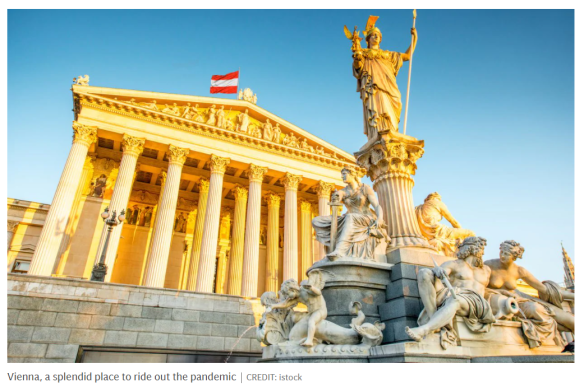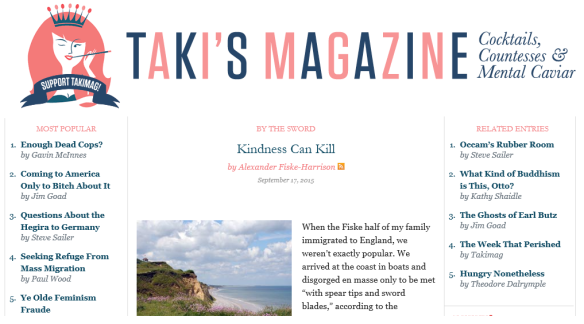THE TELEGRAPH
COMMENT
As an expat in Vienna, I love everything about Europe (except the EU)
Selfishly, I have indeed benefited from the EU, but that’s not to say it’s the best thing for Britain

(The original article can be found by subscribers at The Telegraph online here.)
It was at a lunch with several grandees of old Vienna where I was forcibly reminded that it was in this city that the longest European peace since the original ‘Pax Romana’ – from the fall of Napoleon to the rise of the Kaiser – was negotiated between a British Foreign Secretary, Viscount Castlereagh, and Prince Metternich, the chief negotiator of the European Unionists of that epoch, the Habsburg Monarchy, who had only just renounced the title of Holy Roman Emperor.
The 1815 Congress of Vienna was soon followed, in 1820, by Britain’s official and complete withdrawal from European affairs into “splendid isolation”. The effects of this, the original Brexit, were so positive that one US Secretary of State, Henry Kissinger, would later publish his Harvard PhD thesis on the period under the title ‘A World Restored’.
Personally, there is no denying that as a British citizen living in Mitteleuropa, and who spent the first lockdown as a resident in Spain, I have encountered a great deal of incomprehension among my Continental friends as to why Britain would want to leave this benevolent, if quasi-Imperial, set up.
And, as an Englishman with an Austrian fiancée, a Belgian shepherd dog and a breeding herd of horses all descendant from an Irish thoroughbred (El Star, first cousin to the legendary Frankel no less), I truly do see myself as, in Metternich’s own phrase, “a Citizen of Europe”. Continue reading


